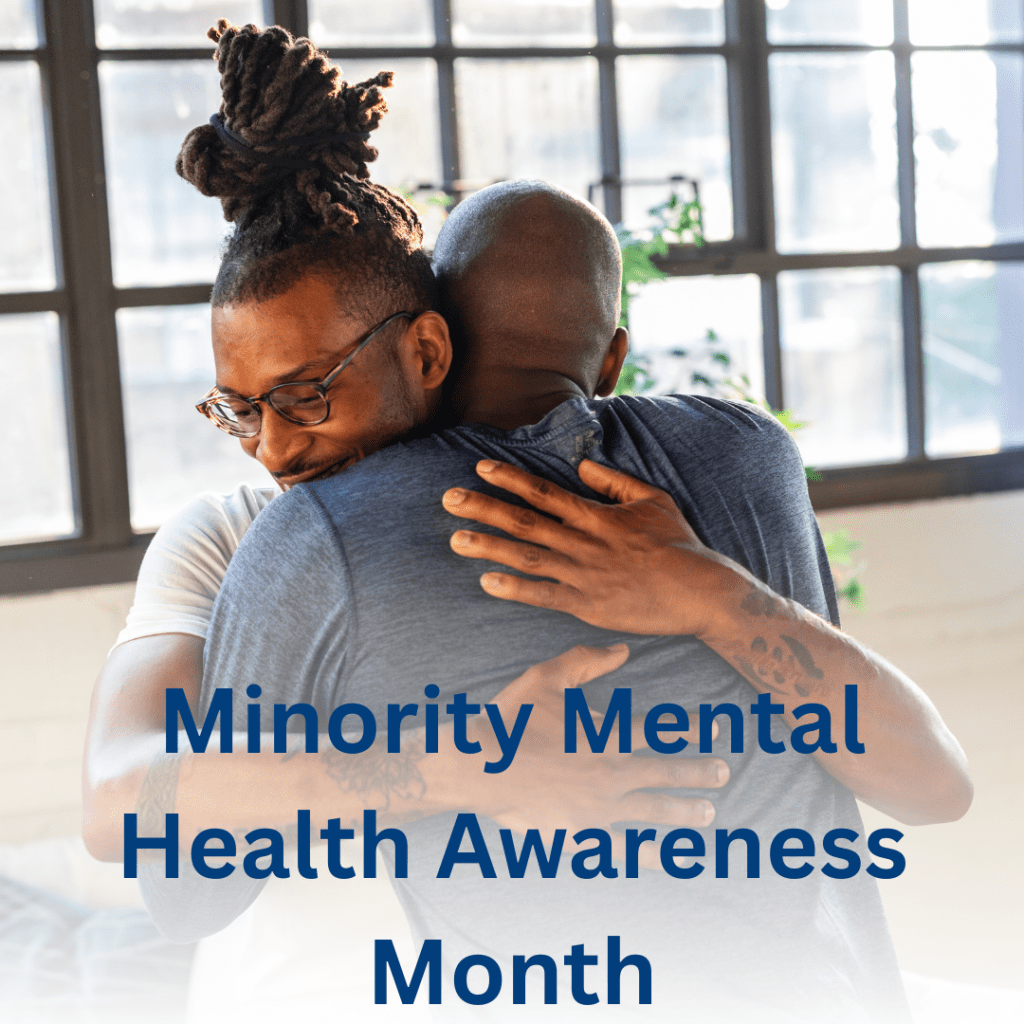
Every July, Minority Mental Health Awareness Month calls attention to a pressing reality: racial and ethnic minorities in the U.S. face persistent disparities in accessing quality mental health care.
July is Minority Mental Health Awareness Month, a time to spotlight the disparities in mental health care access among racial and ethnic minorities. Backed by the U.S. Department of Health and Human Services’ Office of Minority Health, this observance highlights the need for equitable, culturally competent behavioral health services.
For healthcare leaders, it’s an opportunity to examine structural barriers, support inclusive care models, and connect equity efforts to health outcomes, cost reduction, and system-wide trust.
Key Facts
- Racial and ethnic minorities are less likely to receive mental health services than white individuals.
- Cultural stigma, limited access, and provider bias contribute to treatment gaps.
- Integrating culturally competent care improves outcomes and reduces long-term costs.
The Purpose of Minority Mental Health Awareness Month
Founded in 2008 in honor of author and advocate Bebe Moore Campbell, Minority Mental Health Awareness Month draws attention to the unique mental health struggles faced by underrepresented communities. These include African American, Hispanic/Latino, Asian American, Native American, and Pacific Islander populations.
Research from SpringerLink and APA PsycNet shows that key barriers include:
- Lack of culturally competent care.
- Socioeconomic and insurance challenges.
- Language differences and provider mistrust.
- Stigma surrounding mental health within minority communities.
These barriers often result in lower treatment rates and delayed diagnoses, which increase risks for chronic conditions, disability, and emergency-level interventions.
Supporting Equity Through Clinical and Community Strategies
Promoting behavioral health equity requires tailored strategies grounded in cultural understanding. According to Taylor & Francis Online, organizations can make meaningful progress by:
- Offering language access services and culturally specific therapy options.
- Training staff in cultural humility and unconscious bias.
- Hiring diverse clinical and administrative teams.
- Collaborating with local leaders, churches, and community-based organizations.
These approaches help build trust, increase patient engagement, and bring care directly into underserved populations.
Key Takeaways
- Racial and ethnic minorities are significantly less likely to receive mental health care due to systemic barriers like stigma, provider bias, and language access.
Culturally competent care (including bilingual services, community collaboration, and diverse hiring) improves outcomes and reduces long-term treatment costs.
Healthcare leaders play a key role in behavioral health equity by supporting staff training, inclusive outreach efforts, and telehealth expansion for underserved populations.
FAQs
What specific steps can our organization take to deliver more culturally competent mental health care?
Start by offering ongoing training on cultural humility, hiring diverse staff, and incorporating translation or interpretation services. Additionally, partner with local community groups to build trust and create culturally informed outreach strategies.How can we address stigma around mental health in minority communities?
Stigma is often rooted in cultural, religious, or historical mistrust. Address it through targeted education campaigns, engagement with community leaders (e.g., clergy, elders), and by normalizing mental health discussions during routine care visits.What role does telehealth play in expanding behavioral health access for underserved populations?
Telehealth can bridge access gaps (especially in rural or underserved urban areas) by reducing transportation, time, and stigma-related barriers. Ensure platforms are mobile-friendly, multilingual, and marketed through culturally relevant channels.
Each week, we email a summary along with links to our newest articles and resources. From time to time, we also send urgent news updates with important, time-sensitive details.
Please fill out the form to subscribe.
Note: We do not share our email subscriber information and you can unsubscribe at any time.
|
|
Thank you for Signing Up |

Sources
- American Psychological Association
Mental Health Disparities Among Racial and Ethnic Minorities: What Providers Should Know
https://www.apa.org/pi/disability/resources/mental-health-disparities - The Health Behavioral Change Imperative
Cultural Competence in Behavioral Health Care
https://link.springer.com/chapter/10.1007/978-1-4615-0731-4_3 - Ethics, Medicine and Public Health
Addressing Mental Health Stigma in Low-Income and Middle-Income Countries: A New Frontier for Digital Mental Health
https://pmc.ncbi.nlm.nih.gov/articles/PMC8786211/ - Taylor & Francis
Stigma: Barrier to Mental Health Care Among Ethnic Minorities
https://www.tandfonline.com/doi/full/10.1080/01612840500280638
Previous Articles
Partner with BHM Healthcare Solutions
With over 20 years in the industry, BHM Healthcare Solutions is committed to providing consulting and review services that help streamline clinical, financial, and operational processes to improve care delivery and organizational performance.
We bring the expertise, strategy, and capacity that healthcare organizations need to navigate today’s challenges – so they can focus on helping others.
Are you ready to make the shift to a more effective process?
